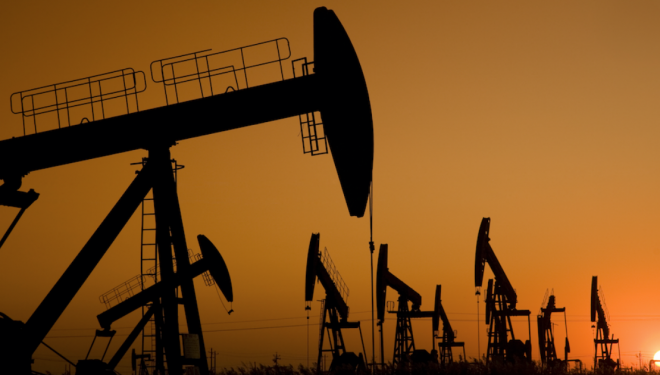
By Megan Unger and Darrin Gambelin
In City of New York v. Chevron Corporation, the city brought state-law tort claims against Chevron Corporation, ConocoPhillips, Exxon Mobil Corporation, Royal Dutch Shell plc, and BP p.l.c. for damages caused by global greenhouse gas emissions. The Second Circuit Court of Appeals unanimously affirmed the dismissal of the action by the U.S. District Court for the Southern District of New York, where the case was initially filed. The Second Circuit held municipalities cannot use state tort law to hold such companies liable for damages caused by global greenhouse gas emissions. It stated that because climate change is an international matter dealing with federalism and foreign policy, federal common law should be applied rather than state law. The court also found the U.S. Environmental Protection Agency (EPA), not federal courts, is granted the authority under the federal Clean Air Act to regulate domestic greenhouse gas emissions, thus making federal common law actions inappropriate. Lastly, while the Clean Air Act is silent regarding regulating foreign emissions, the lack of congressional direction on the topic, along with foreign policy concerns and judicial caution, led to the barring of the city’s claims and the dismissal of the complaint. [City of New York v. Chevron Corporation, 993 F.3d 81 (2nd Cir. 2021).]
Claims Against the Five Multinational Oil Companies
Public nuisance, private nuisance, and trespass were asserted by New York City. While the city acknowledged the companies’ conduct was a lawful commercial activity, it claimed the companies were aware for decades that the production, marketing, and sale of fossil fuels posed a severe risk to the planet’s climate, and downplayed said risks while continuing to sell enormous amounts of fossil fuels. The city also stated it was especially vulnerable to the effects of global warming, like rising sea levels, and that its taxpayers should not have to carry the burden of financing the protection of the city from the effects of climate change. While the defendants did not dispute that greenhouse gas emissions from fossil fuels have been a contributor to global warming, they were successful at the lower court level, in which the district court held that New York City’s claims arose under federal common law and were barred by multiple federal doctrines. U.S. District Judge John F. Keenan of the Southern District of New York dismissed the complaint in July of 2018. Judge Keenan found greenhouse gasses were governed by federal common law; the Clean Air Act displaced federal common law claims in regard to domestic greenhouse gas emissions; and, due to foreign policy considerations and the presumption against extraterritoriality as they relate to foreign emissions, the claims were barred.
The Second Circuit Court of Appeals’ Decision
The Second Circuit upheld the dismissal, acknowledging global warming as one of society’s largest hurdles, and stating the topic presented a uniquely international problem of national concern. The court found the state law theories of public nuisance, private nuisance, and trespass could not be used against the large oil companies for injuries to the city due to global warming. It stated that while it may seem the decision went against recent opinions concluding that state law claims for public nuisance brought against producers of fossil fuels do not arise under federal law, the decision to dismiss the case came about because “the devil is in the (procedural) details.” The plaintiffs in the earlier decisions brought state law claims in state court, which were later removed to federal court, while this case was initiated in federal court. For example, in City of Oakland v. BP p.l.c., 969 F.3d 895 (9th Cir. 2020), the Ninth Circuit remanded the case back to state court because it found the city’s claims did not raise substantial questions of federal law.
Here, the Second Circuit held that state law is preempted by federal common law, and federal common law claims relating to domestic greenhouse gas emissions are displaced by the Clean Air Act because it speaks directly to the issue and grants the EPA, not federal courts, the authority to regulate domestic greenhouse gas emissions. In regard to the claims concerning foreign emissions, the court found that while the Clean Air Act does not cover the topic:
. . .federal courts must proceed cautiously when venturing into the international arena so as to avoid unintentionally stepping on the toes of the political branches.
With no direction from Congress regarding regulating foreign emissions, the city’s claims were barred and its complaint dismissed.
Conclusion and Implications
This decision will support the position that torts related to climate change are preempted by federal law under the federal Clean Air Act. However, this issue is far from settled. The City of New York may appeal this case to the Supreme Court. There are also several other pending cases seeking similar relief, including the aforementioned City of Oakland, which has been remanded to state court by the Ninth Circuit, and BP p.l.c. v. Mayor and City Council of Baltimore, Case No. 19-1189 (U.S. May 17, 2021), which was remanded to the Fourth Circuit by the Supreme Court. The most recent decision in Baltimore, announced by the Supreme Court on May 17, 2021, vacated and remanded a Fourth Circuit order which had sent the case back to state court. In a 7-1 ruling, the Court did not directly address whether climate change torts belong in federal court, but found the Fourth Circuit’s review of an order that sent the suit to state court was incorrectly limited. With the various outcomes seen at this stage, we may see one or more of these cases decided on the merits by the Supreme Court. The court’s opinion is available online at: http://blogs2.law.columbia.edu/climate-change-litigation/wp-content/uploads/sites/16/case-documents/2021/20210401_docket-18-2188_opinion.pdf




